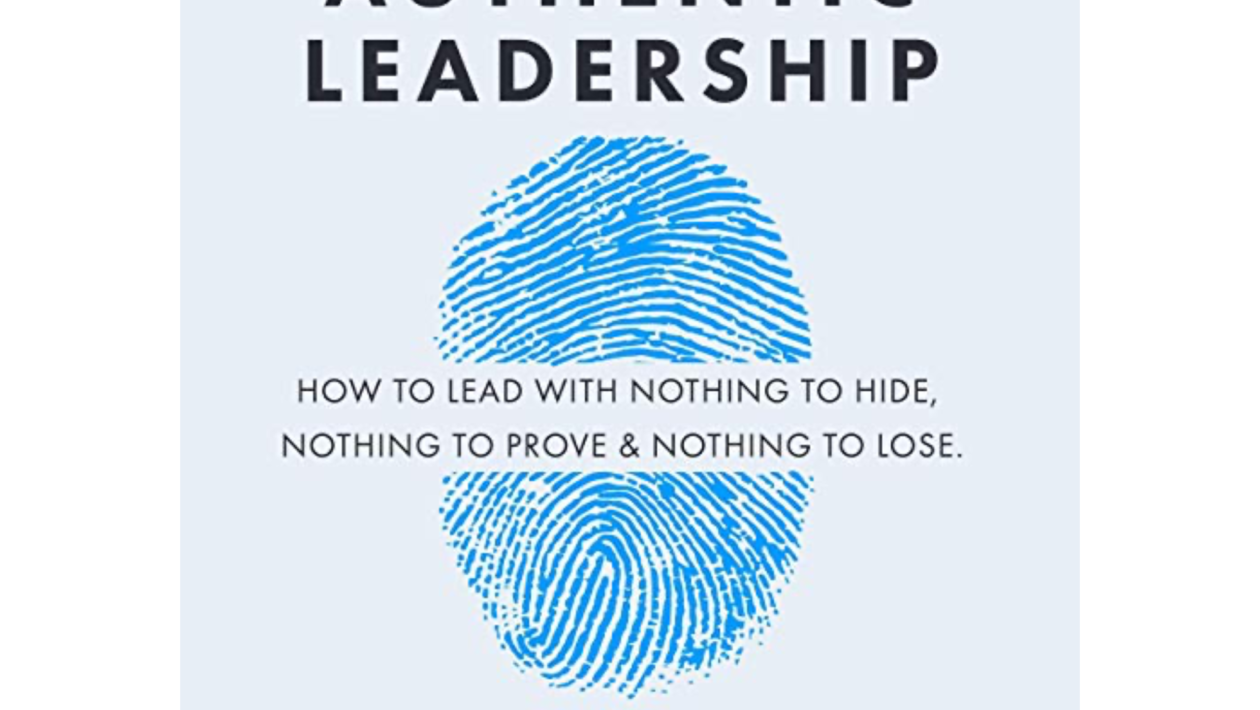By Dan Owolabi
Green Onion Publishing (2020)
Paperback, 170 pages
Reviewed by KAREN PHILLIPS
Authentic Leadership: How to Lead with Nothing to Hide, Nothing to Prove & Nothing to Lose was recommended to me by my pastor. Dan Owolabi’s catchy and intriguing title caught my attention, appealing to my inner need to lead with the right attitude. Whether you are a burned-out leader—one who has lost your vision or is discouraged—or just need a leadership energy boost, Owolabi reminds us that “at the core, authentic leadership is a journey back to the best version of yourself” (p. 57). He compares leadership to a race; if you have a plan and you execute the plan, success is in the making. However, successful leaders cannot run the race alone; they ask others to join them, and they interpret “no” as “not yet” (pp. 142–143). Owolabi gives step-by-step instructions for how a leader can be stirred and revived, inspiring others to action.
Dan Owolabi is a motivational speaker, the co-founder of Owolabi Leadership, and the executive director of Branches Worldwide. Branches is “an international non-profit that identifies and invests in emerging Christian business leaders in thirty different countries” (p. 86). Owolabi inspires and motivates leaders to lead effectively and fearlessly, using the knowledge and skills he developed as a pastor.
Owolabi’s paperback book of 170 pages is an easy and friendly read, presenting aspects of authentic leadership. Unlike other books I have read on the authentic leadership style, Owolabi presents the authentic concepts simply and creatively, yet richly. He brilliantly and intricately weaves in stories, making the principles of authentic leadership comprehensible and thereby stirring leaders to action.
Instead of merely focusing on the characteristics of an authentic leader, like many contemporary theorists, he proposes four practical and attainable steps to prepare leaders for their authentic journey (pp. 69–135). The journey begins by first understanding yourself (pp. 69 –87). According to Owolabi, part of understanding yourself is not letting “doubts, categorizations and opinions of others stick” (p. 70). Next, he discusses the value of leading one’s self, saying, “When you lead yourself, you possess self-disciple, patience, and perseverance” (p. 89). He further states, “You’ve learned to handle the self-doubt and anxiety that comes from taking on new challenges” (pp. 89–90). Owolabi’s third step involves understanding the people you are leading well enough that they know that you care: “Taking the initiative to genuinely understand other individuals will help you move beyond simply exercising power to possessing real influence” (p. 113). Owolabi’s final step is to lead and inspire others. “Once you’ve understood yourself, led yourself, and understood others, you are finally well positioned to inspire others to follow you” (p. 135).
Owolabi identifies a few major internal obstacles that may hinder getting to know yourself and interfere in the development of becoming an authentic leader: fear, pride, and insecurity (p. 57). Overcoming these obstacles is an integral element in his theory of action. For example, he states, “No one, especially leaders, wants to feel insecure. Insecurity, put simply, is a deep feeling of anxiety and uncertainty about yourself” (p. 12). Fear, pride, and insecurities may paralyze a leader, preventing them from making progress and mobilizing others for just causes.
Although Owolabi brilliantly addresses some internal motivations in making decisions for personal growth and self-development of a leader, I feel that he should have delved deeper into external social issues that still plague our society. Leaders motivated by social issues in the past have led selflessly and sacrificially as they turned the world around from the injustices of that time. I think many more leaders today should be motivated to address issues that are counterproductive in our society.
Overall, Owolabi’s book raises discussion in areas of leading unselfishly and addressing social issues in our world. Having done the introspective work using the principles of the four steps Owolabi proposes, some questions remain for leaders: What will we do with the knowledge? Will we be motivated to make changes in our lives for our gain only? Or will we take that inspiration to rally for higher causes? Potential readers, as you read Owolabi’s book it is my hope that as you are inspired, you will inspire and encourage others to change our present situation. As Owolabi says, we can do so by Leading with Nothing to Hide, Nothing to Prove & Nothing to Lose.
Karen Phillips is a New York City special education teacher, early intervention independent contractor, doctoral student in leadership at Andrews University, church leader, and a mother of three young adults.

